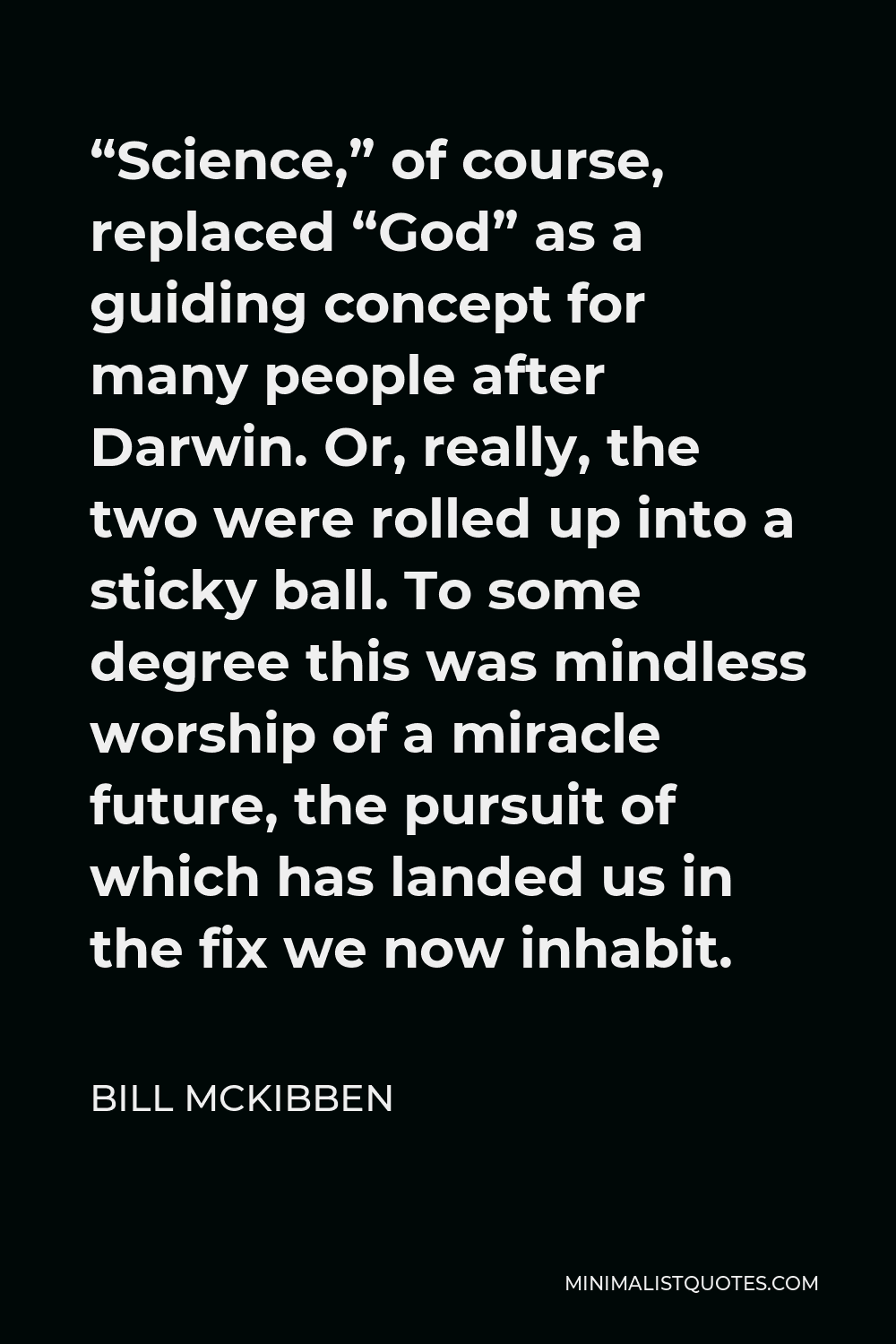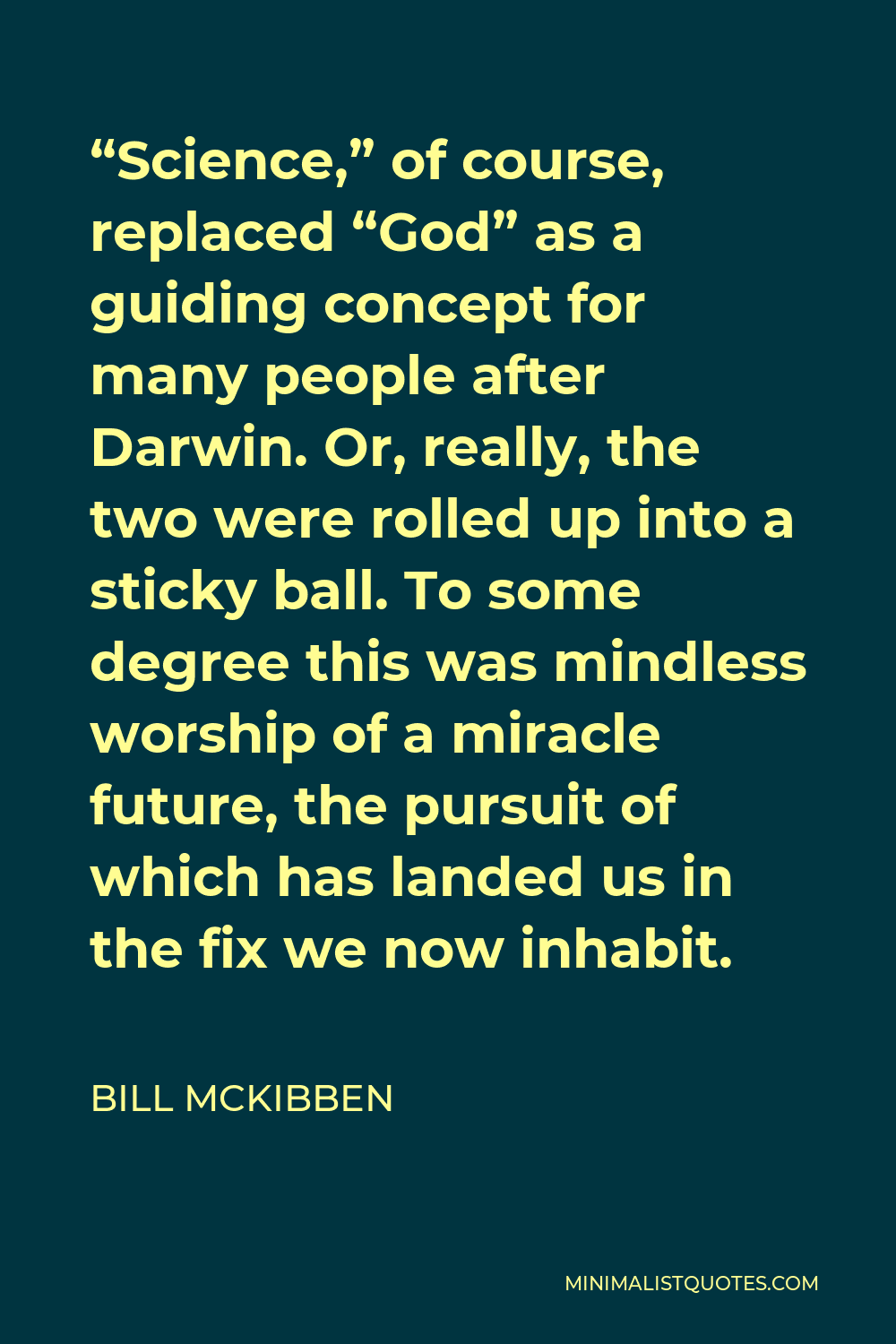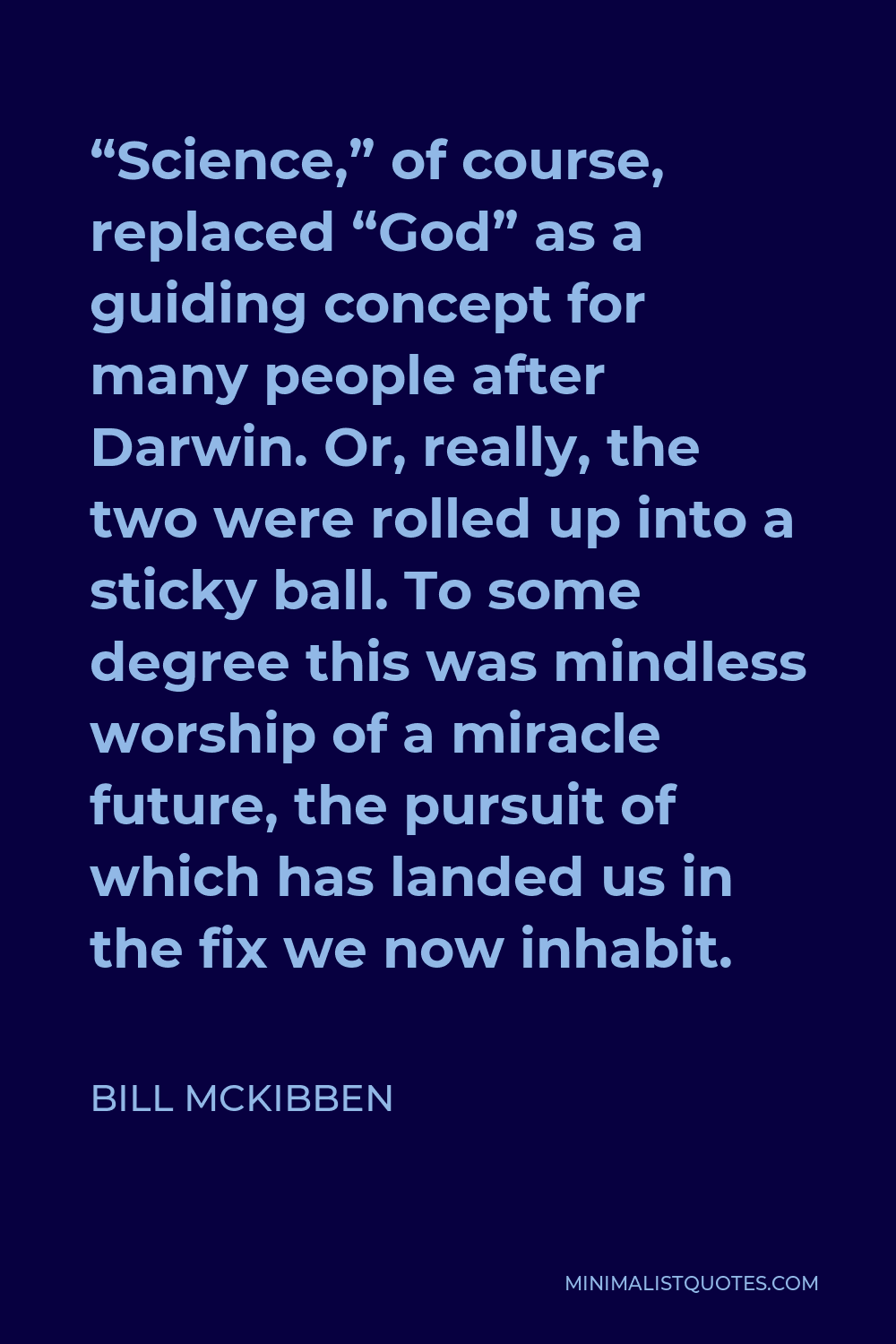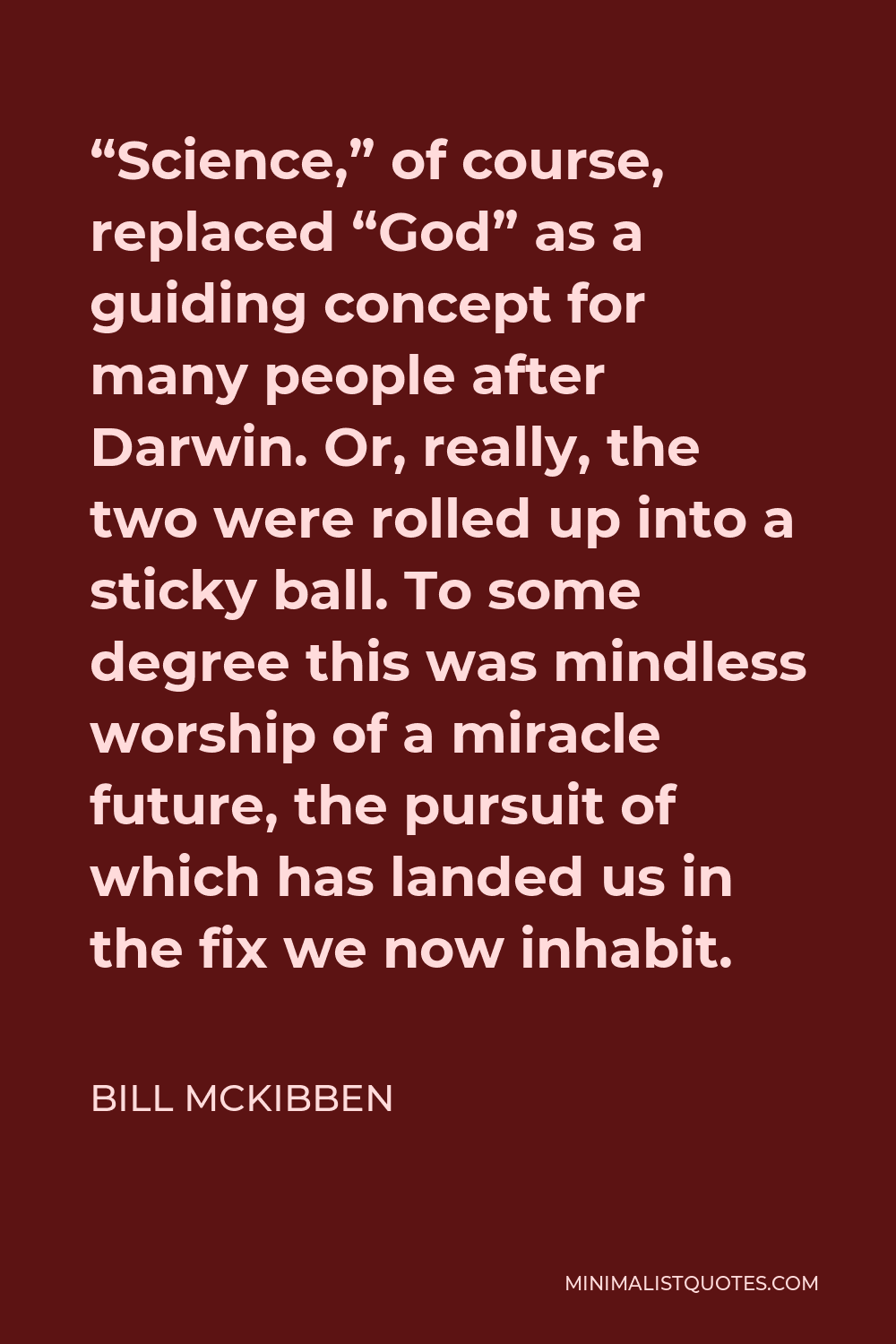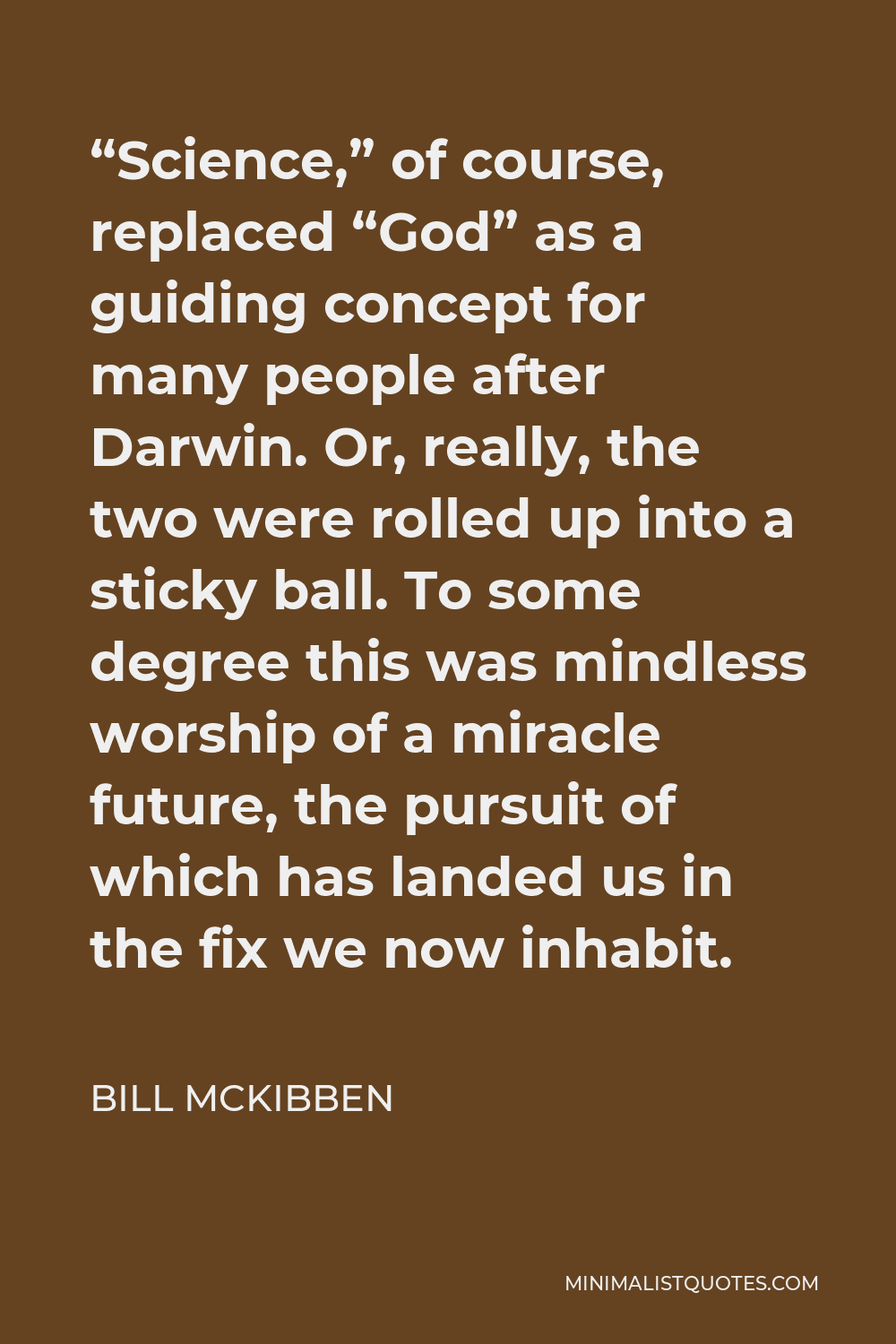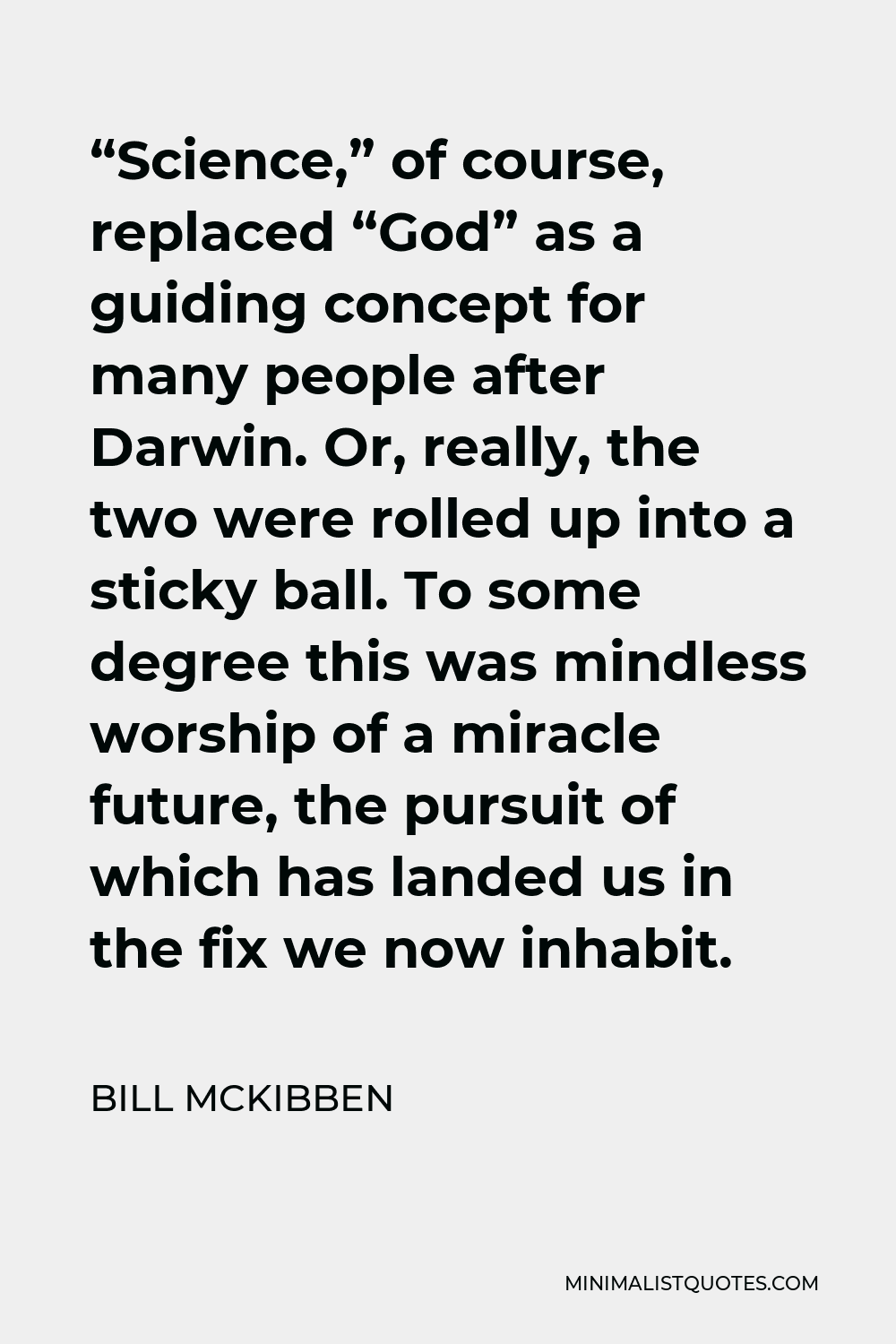A price on carbon sufficient to keep 80% of current reserves underground, rebated directly to citizens.
BILL MCKIBBEN“Science,” of course, replaced “God” as a guiding concept for many people after Darwin. Or, really, the two were rolled up into a sticky ball. To some degree this was mindless worship of a miracle future, the pursuit of which has landed us in the fix we now inhabit.
More Bill McKibben Quotes
-





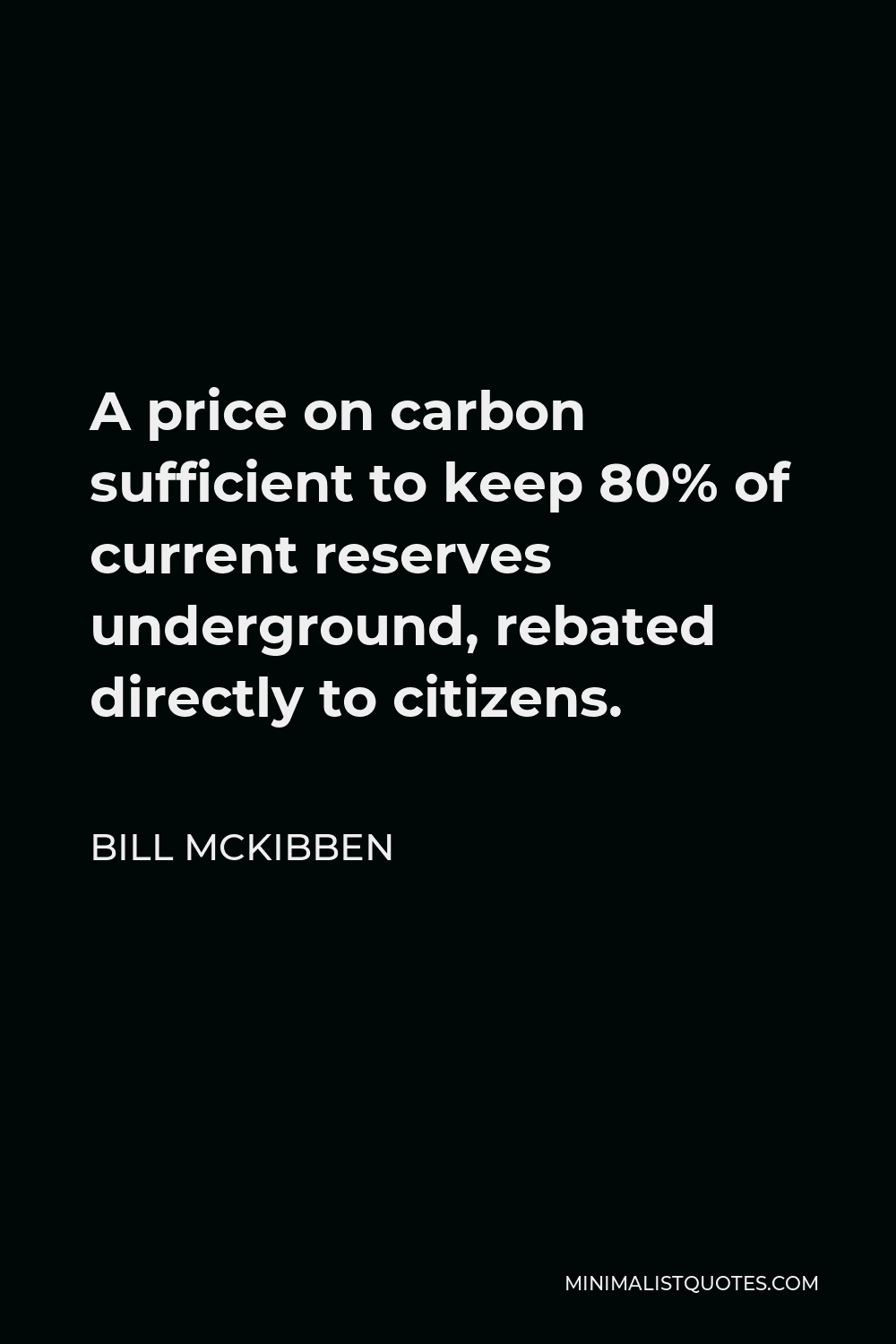
-





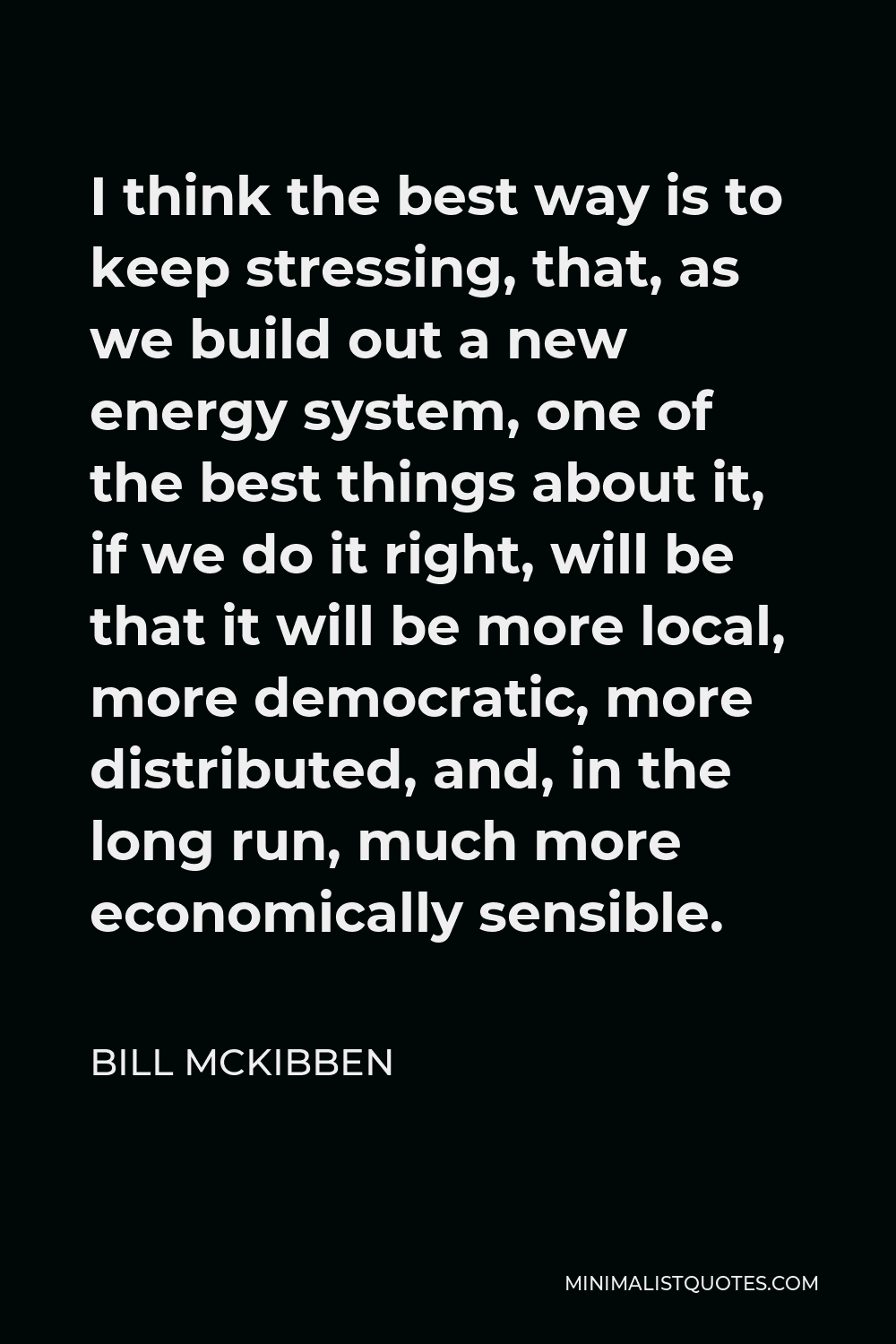
I think the best way is to keep stressing, that, as we build out a new energy system, one of the best things about it, if we do it right, will be that it will be more local, more democratic, more distributed, and, in the long run, much more economically sensible.
BILL MCKIBBEN -





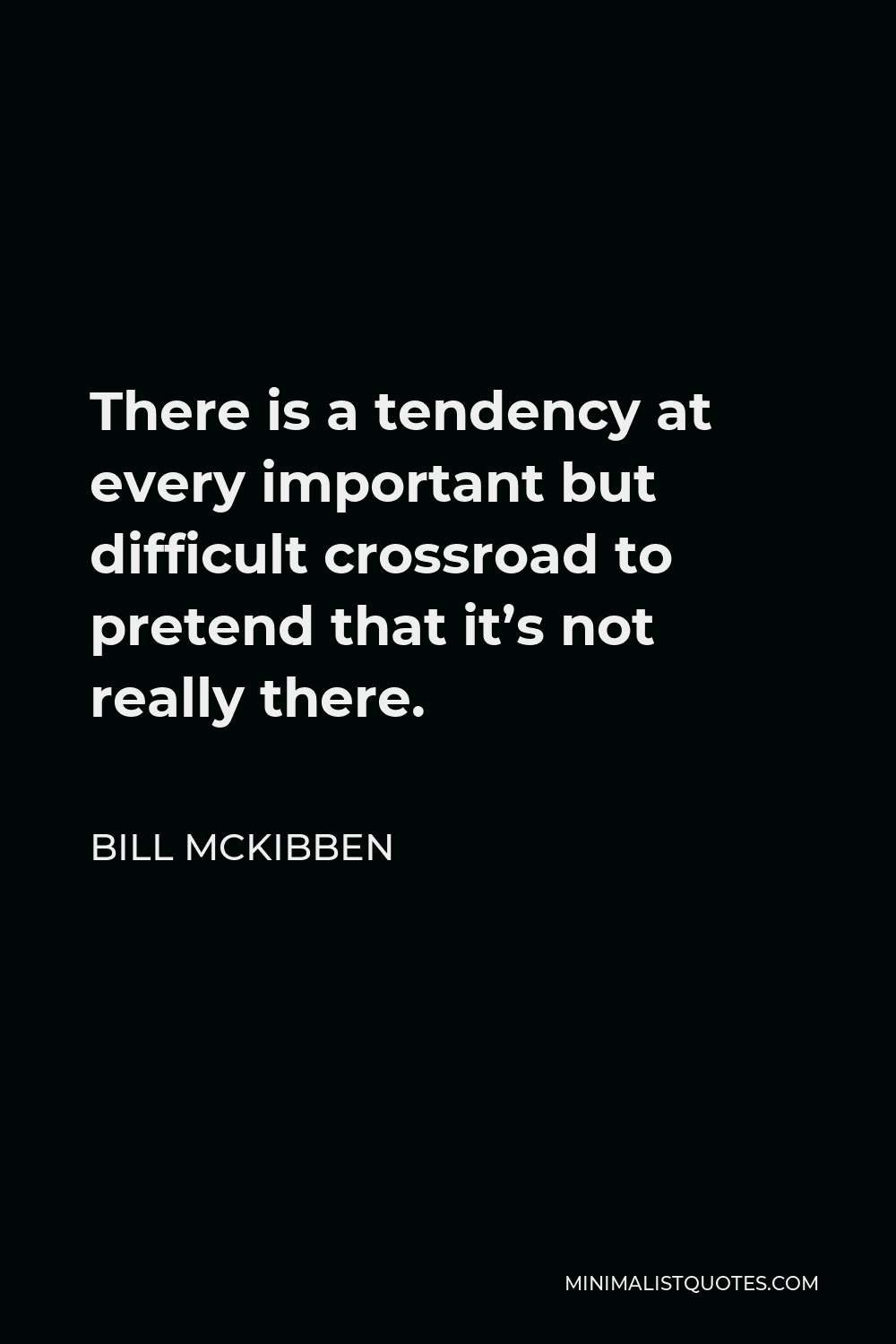
There is a tendency at every important but difficult crossroad to pretend that it’s not really there.
BILL MCKIBBEN -





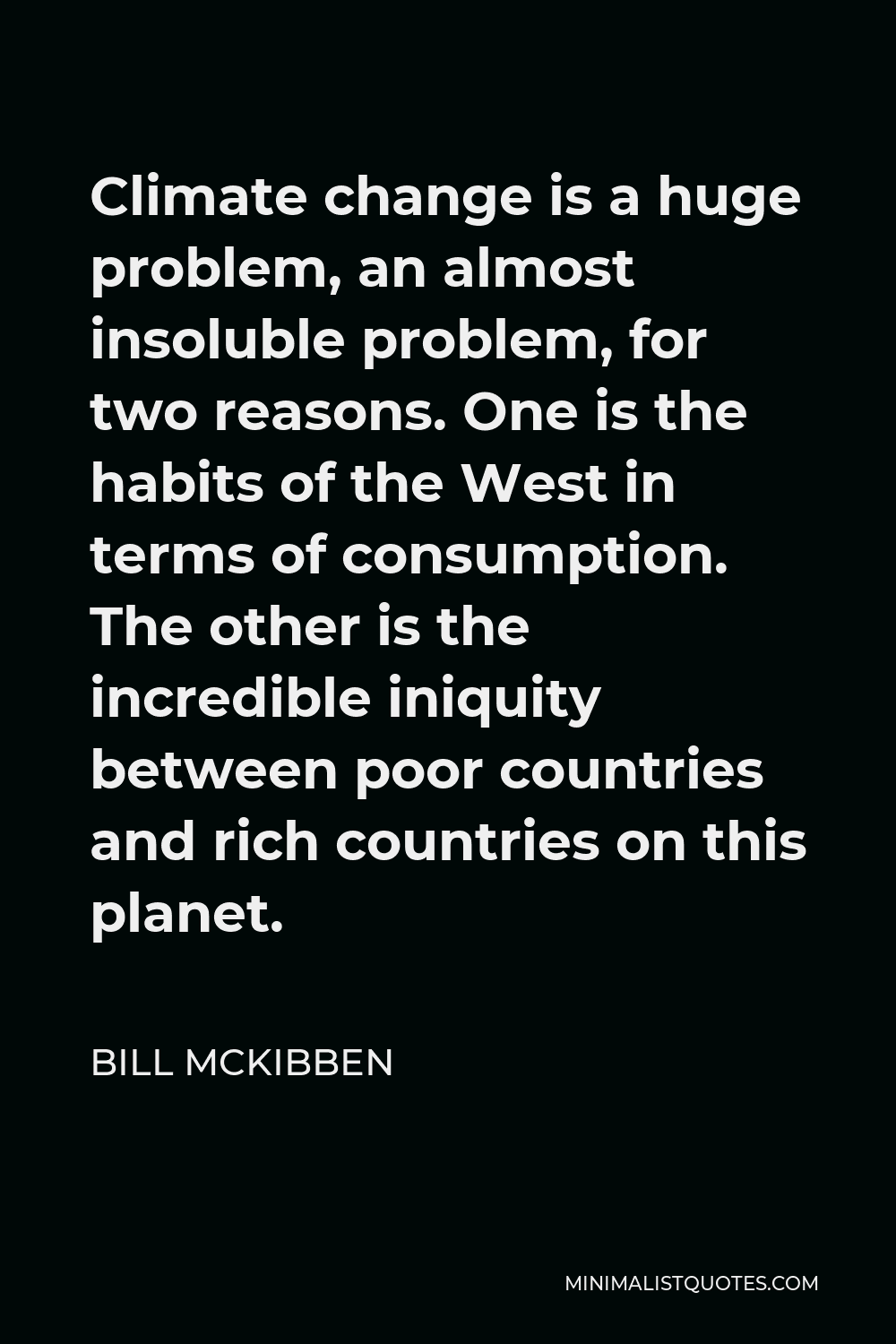
Climate change is a huge problem, an almost insoluble problem.
BILL MCKIBBEN -





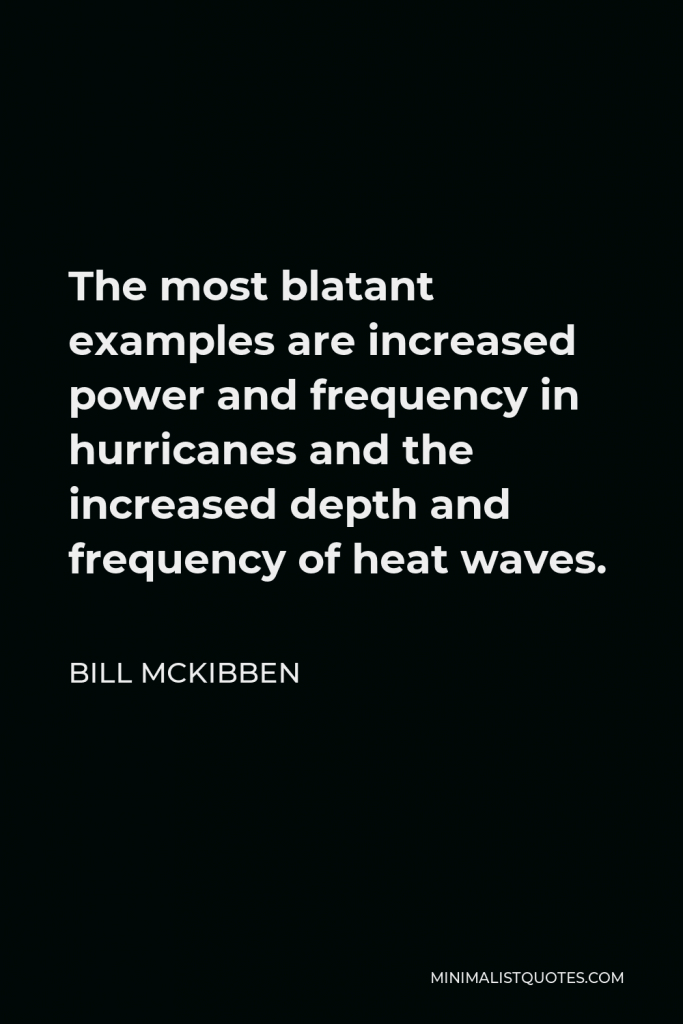

The most blatant examples are increased power and frequency in hurricanes and the increased depth and frequency of heat waves.
BILL MCKIBBEN -





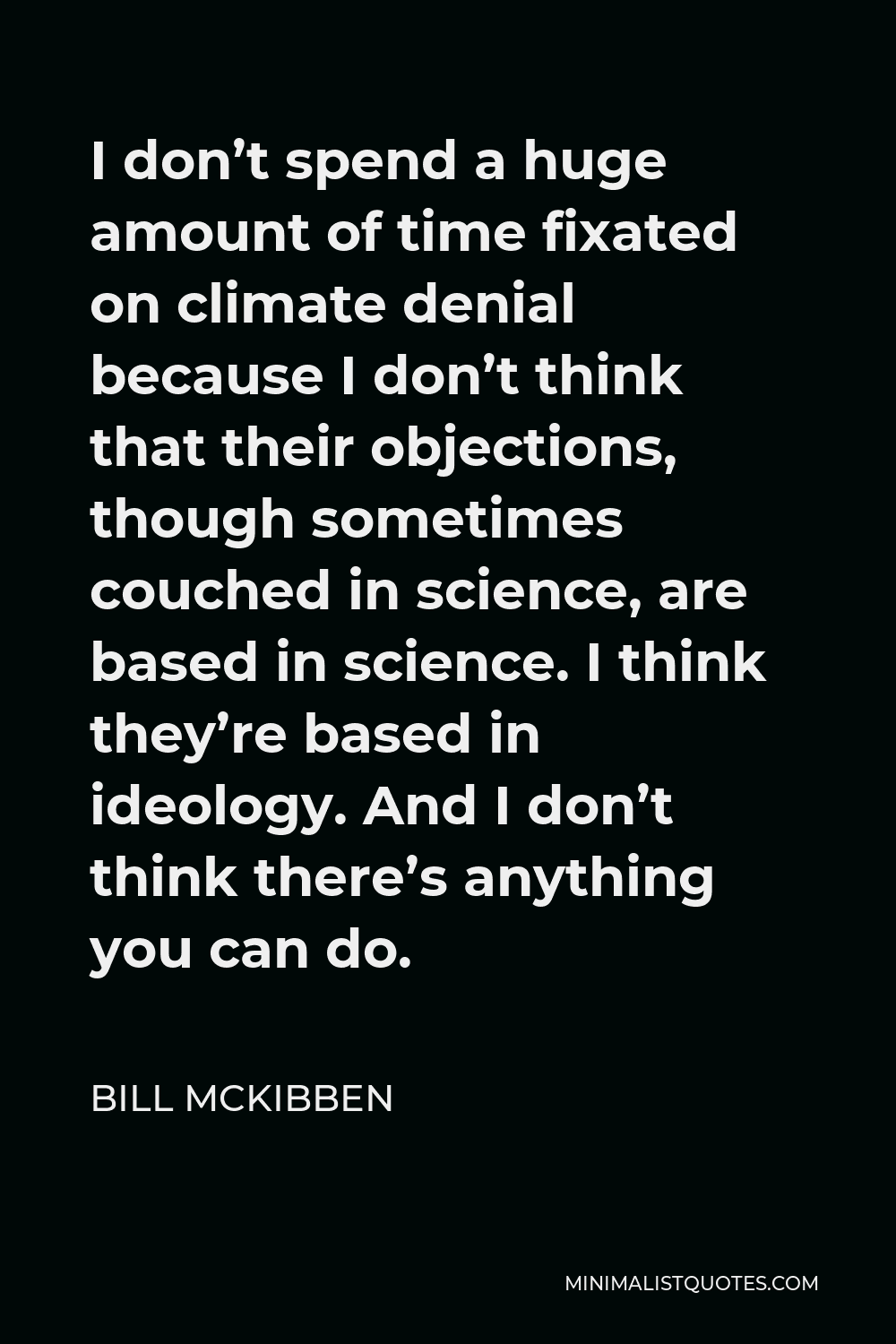
I don’t spend a huge amount of time fixated on climate denial because I don’t think that their objections, though sometimes couched in science, are based in science. I think they’re based in ideology. And I don’t think there’s anything you can do.
BILL MCKIBBEN -





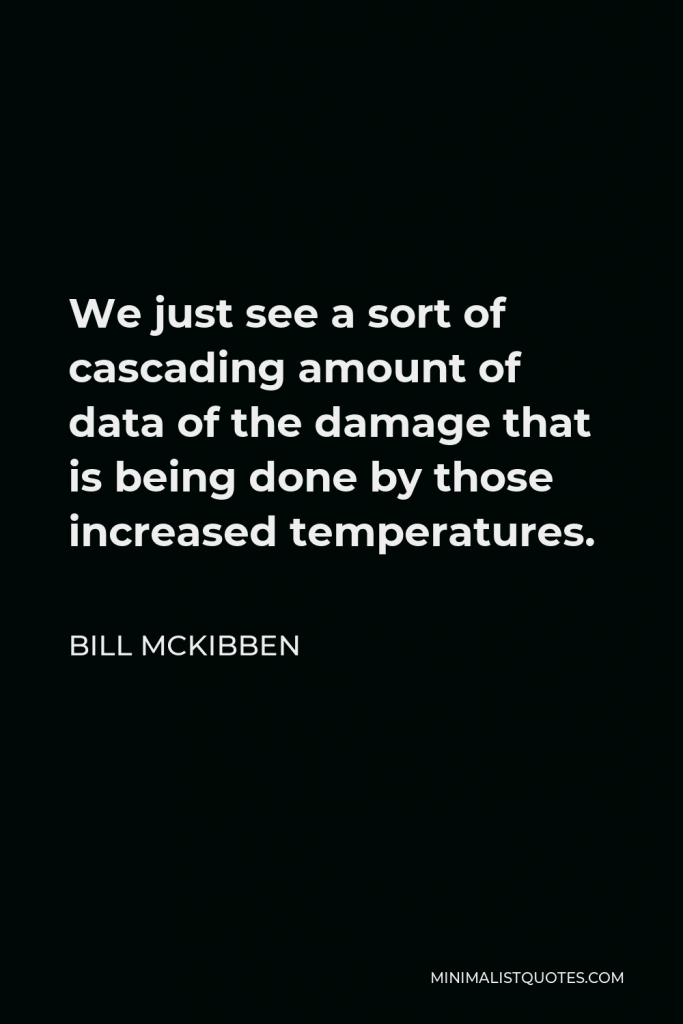

We just see a sort of cascading amount of data of the damage that is being done by those increased temperatures.
BILL MCKIBBEN -





![Bill McKibben Quote - When we work all over the planet, it’s mostly poor and black and brown and young people, because that’s mostly what the world [environmentalism] is.](https://minimalistquotes.com/wp-content/uploads/2023/03/when-we-work-all-over-the-planet-its-mostly-poor-a-683x1024.jpg)

When we work all over the planet, it’s mostly poor and black and brown and young people, because that’s mostly what the world [environmentalism] is.
BILL MCKIBBEN -





![Bill McKibben Quote - To me the analogy [to climate change] is… doctors worry a lot about cholesterol. And if you go to the doctor, and the doctor says “oh, your life would be happier if you ate a different diet and exercised” people pay no attention.](https://minimalistquotes.com/images/to-me-the-analogy-to-climate-change-is-doctors-wor.jpg)
To me the analogy [to climate change] is… doctors worry a lot about cholesterol. And if you go to the doctor, and the doctor says “oh, your life would be happier if you ate a different diet and exercised” people pay no attention.
BILL MCKIBBEN -





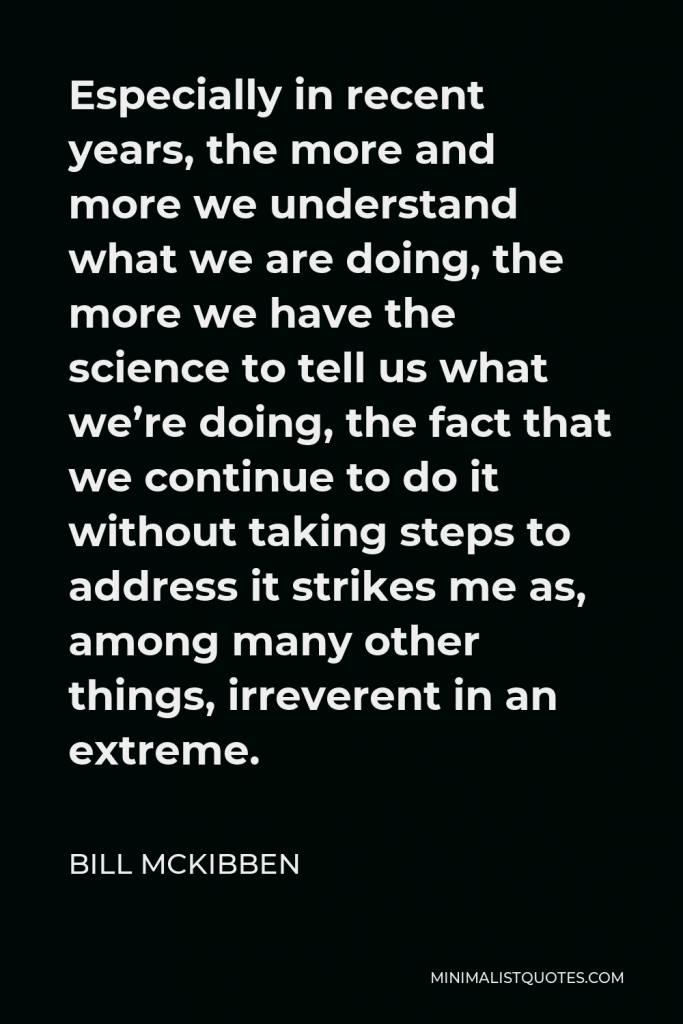

Especially in recent years, the more and more we understand what we are doing, the more we have the science to tell us what we’re doing, the fact that we continue to do it without taking steps to address it strikes me as, among many other things, irreverent in an extreme.
BILL MCKIBBEN -





![Bill McKibben Quote - If [a student’s] college’s endowment portfolio has fossil-fuel stock, then their educations are being subsidized by investments that guarantee they won’t have much of a planet on which to make use of their degree.](https://minimalistquotes.com/images/if-a-students-colleges-endowment-portfolio-has-fos.jpg)
If [a student’s] college’s endowment portfolio has fossil-fuel stock, then their educations are being subsidized by investments that guarantee they won’t have much of a planet on which to make use of their degree.
BILL MCKIBBEN -





![Bill McKibben Quote - To me, it’s more important to take the 60-70% of people who really understand that there’s a problem [of climate change] and get some percentage of them active than to try and stamp out the last embers of pre-scientific thought.](https://minimalistquotes.com/images/to-me-its-more-important-to-take-the-60-70-of-peop.jpg)
To me, it’s more important to take the 60-70% of people who really understand that there’s a problem [of climate change] and get some percentage of them active than to try and stamp out the last embers of pre-scientific thought.
BILL MCKIBBEN -





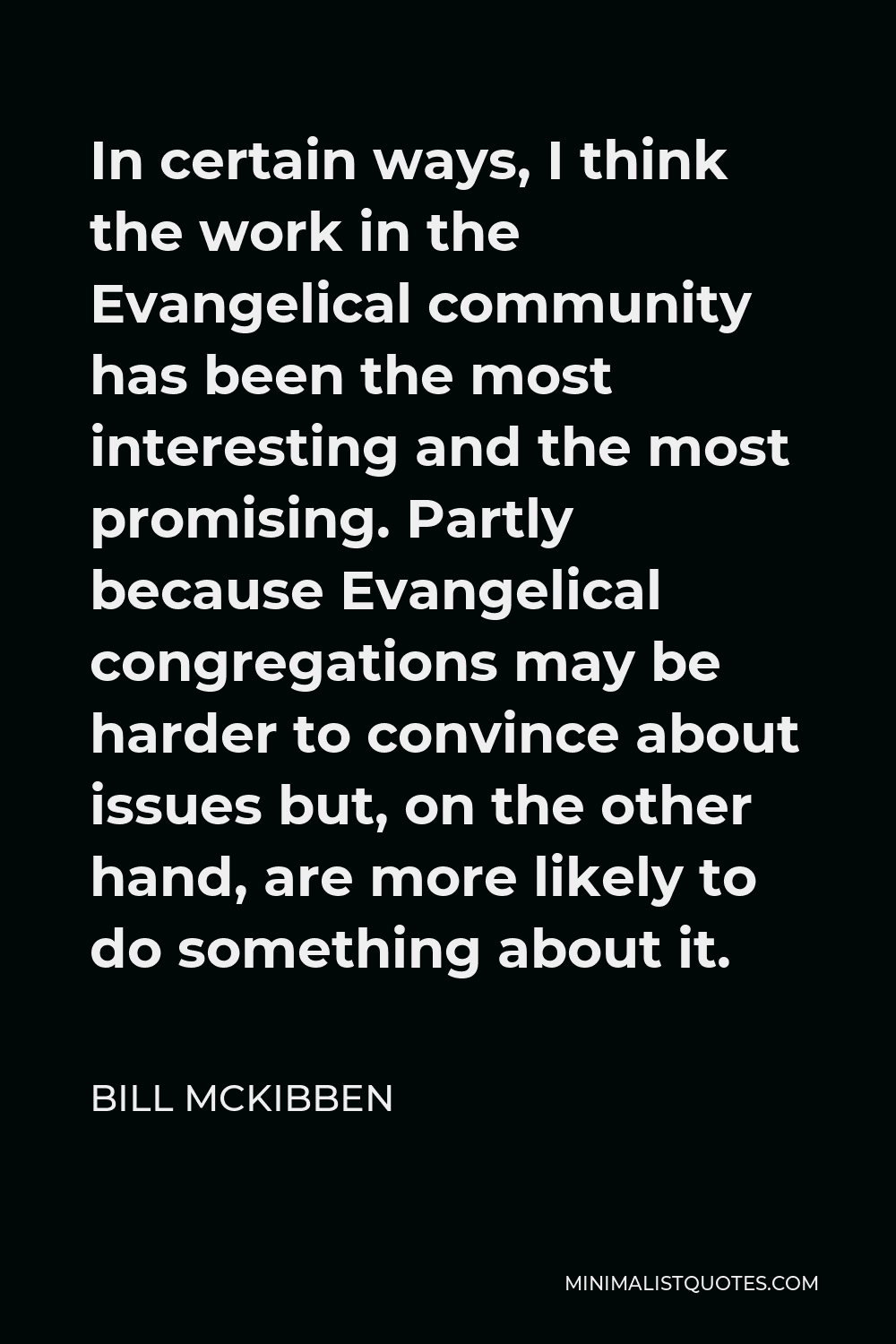
In certain ways, I think the work in the Evangelical community has been the most interesting and the most promising. Partly because Evangelical congregations may be harder to convince about issues but, on the other hand, are more likely to do something about it.
BILL MCKIBBEN -





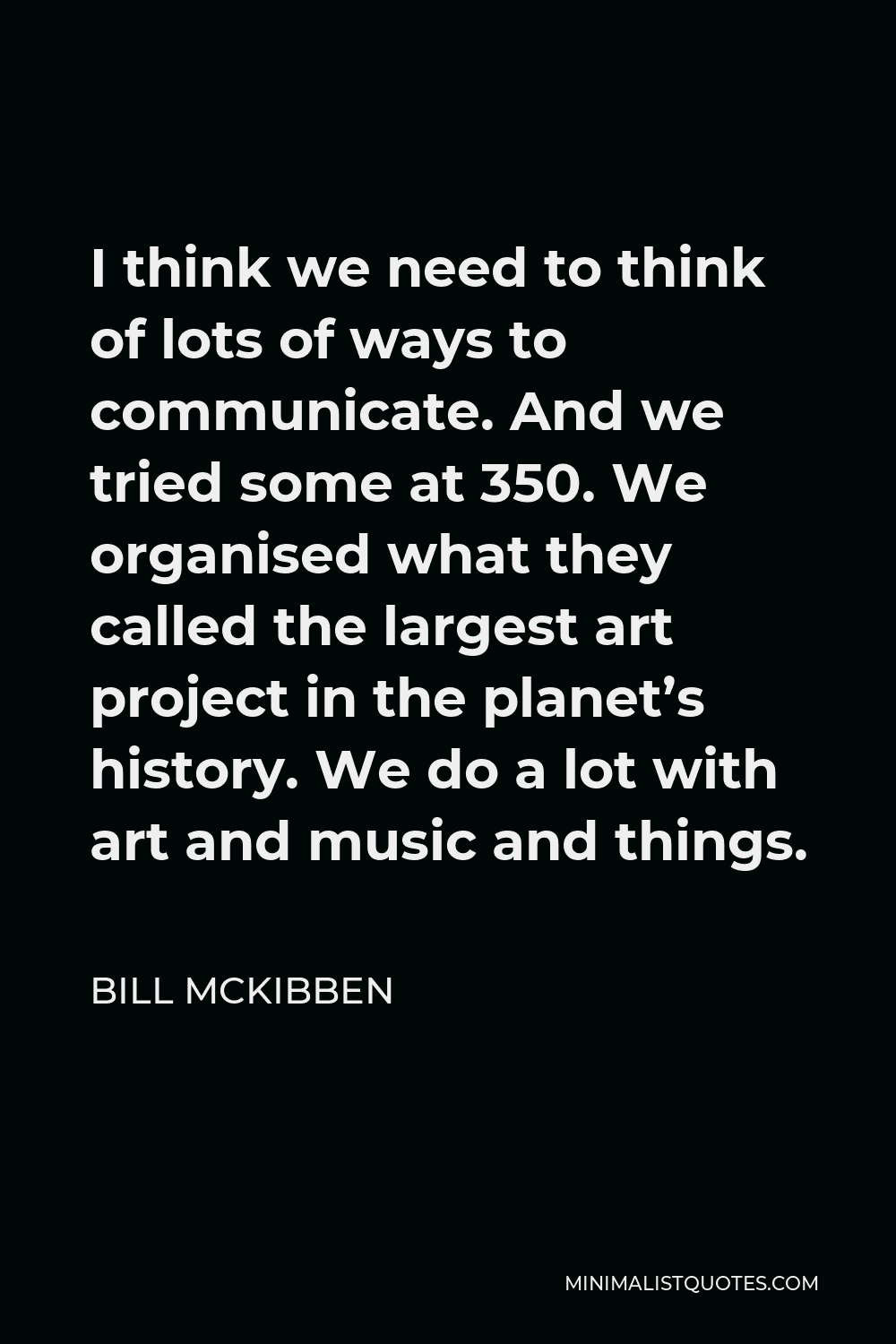
I think we need to think of lots of ways to communicate. And we tried some at 350. We organised what they called the largest art project in the planet’s history. We do a lot with art and music and things.
BILL MCKIBBEN -





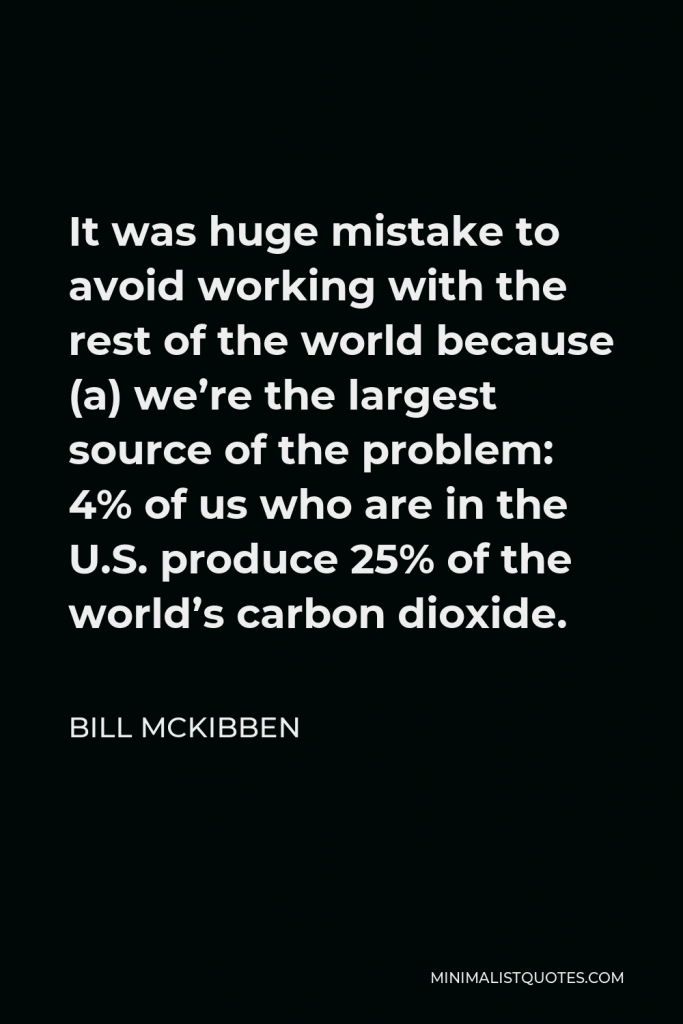

It was huge mistake to avoid working with the rest of the world because (a) we’re the largest source of the problem: 4% of us who are in the U.S. produce 25% of the world’s carbon dioxide.
BILL MCKIBBEN -





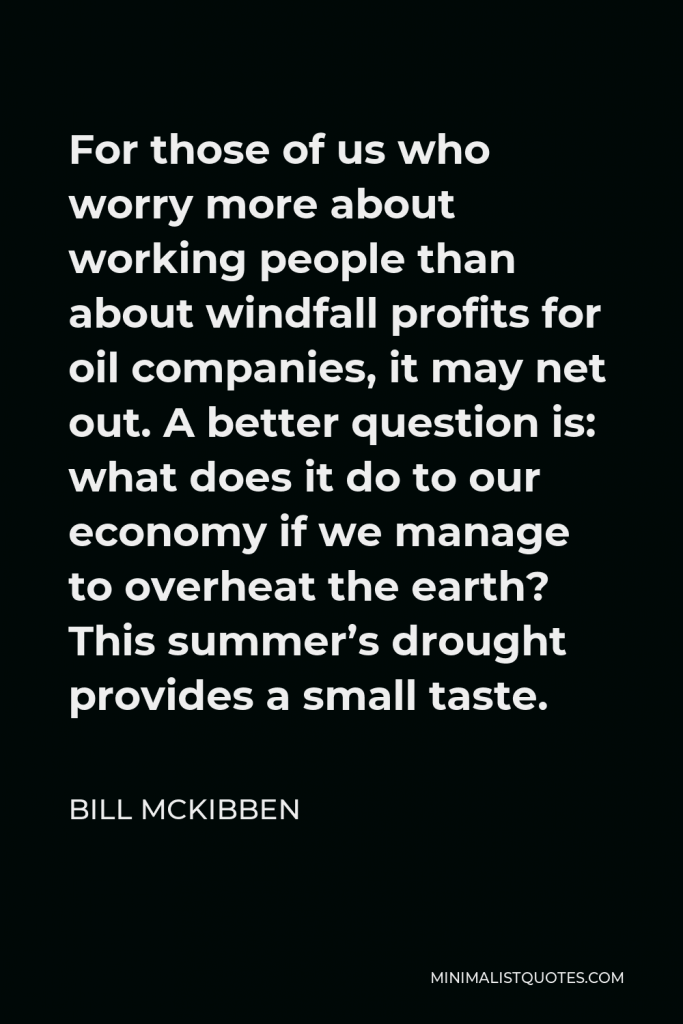

For those of us who worry more about working people than about windfall profits for oil companies, it may net out. A better question is: what does it do to our economy if we manage to overheat the earth? This summer’s drought provides a small taste.
BILL MCKIBBEN
